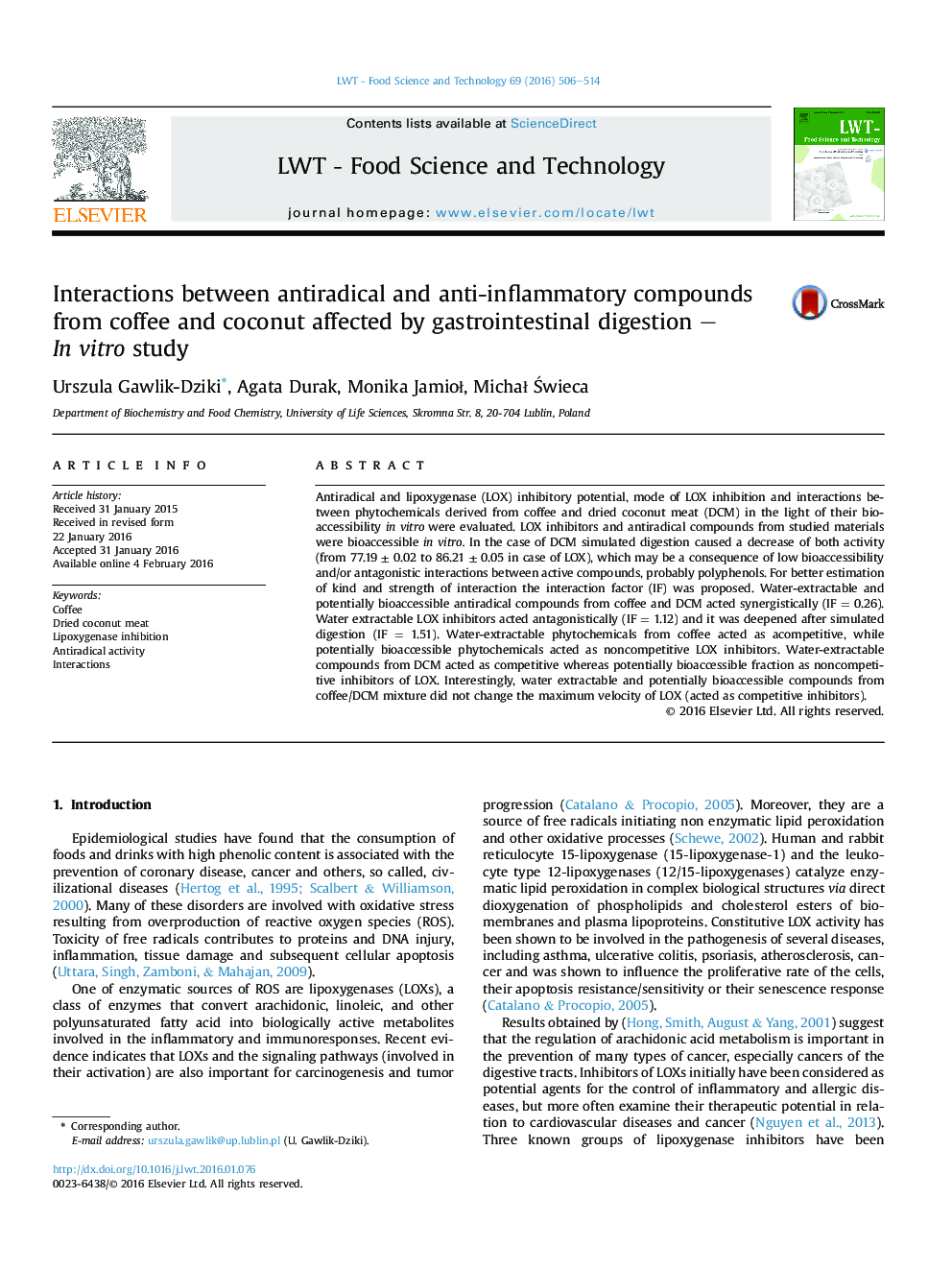| Article ID | Journal | Published Year | Pages | File Type |
|---|---|---|---|---|
| 4563775 | LWT - Food Science and Technology | 2016 | 9 Pages |
•Antiradical and anti-inflammatory activity of coffee with coconut was studied.•Interactions between bioactive compounds were studied using isobolographic analysis.•Antiradical phytochemicals from coffee and coconut act synergistically.•Hydrophilic lipoxygenase inhibitors from coffee and coconut act antagonistically.•Phytochemicals in coffee/coconut mixture act as competitive lipoxygenase inhibitors.
Antiradical and lipoxygenase (LOX) inhibitory potential, mode of LOX inhibition and interactions between phytochemicals derived from coffee and dried coconut meat (DCM) in the light of their bioaccessibility in vitro were evaluated. LOX inhibitors and antiradical compounds from studied materials were bioaccessible in vitro. In the case of DCM simulated digestion caused a decrease of both activity (from 77.19 ± 0.02 to 86.21 ± 0.05 in case of LOX), which may be a consequence of low bioaccessibility and/or antagonistic interactions between active compounds, probably polyphenols. For better estimation of kind and strength of interaction the interaction factor (IF) was proposed. Water-extractable and potentially bioaccessible antiradical compounds from coffee and DCM acted synergistically (IF = 0.26). Water extractable LOX inhibitors acted antagonistically (IF = 1.12) and it was deepened after simulated digestion (IF = 1.51). Water-extractable phytochemicals from coffee acted as acompetitive, while potentially bioaccessible phytochemicals acted as noncompetitive LOX inhibitors. Water-extractable compounds from DCM acted as competitive whereas potentially bioaccessible fraction as noncompetitive inhibitors of LOX. Interestingly, water extractable and potentially bioaccessible compounds from coffee/DCM mixture did not change the maximum velocity of LOX (acted as competitive inhibitors).
